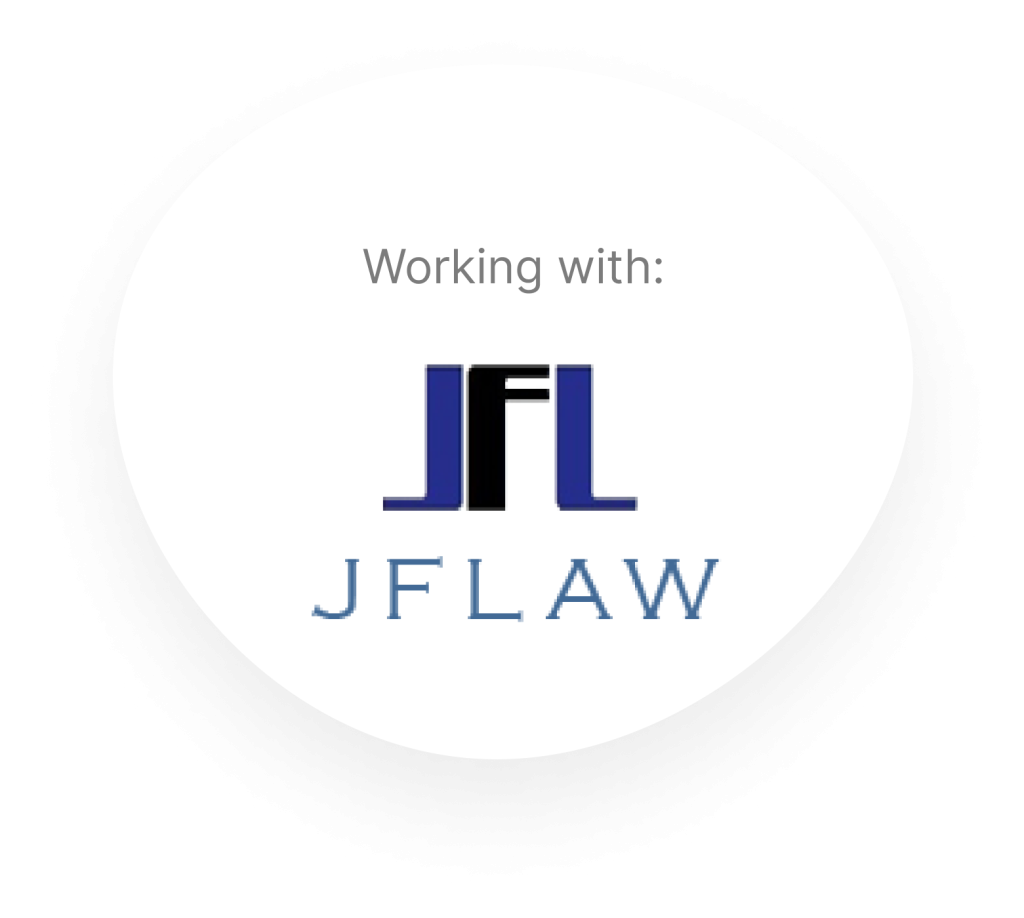This is a guide to the action you should take if you’ve slipped at work. Has your employer’s negligence caused an accident resulting in you sustaining physical or psychological injuries? You could be entitled to claim compensation.
Under the Health and Safety at Work etc. Act 1974 (HASAWA) it is the duty of employers to take reasonably practicable steps to ensure the safety of their employers. This includes: providing proper training, assessing hazards in the workplace, and practising regular maintenance, among other responsibilities. A breach of their duty of care is an example of negligence, which could result in an employee getting injured.
When claiming compensation for an accident at work, you can claim for both the pain and suffering and the financial losses caused by the injury. Slipping at work could result in you being too injured to work. In this instance, you could claim for the loss of earnings.
Continue reading, as this guide will explain the evidence you may be required to provide, how much potential compensation you could be awarded and how a No Win No Fee solicitor could benefit you in your claim. Or, to enquire, contact our team of advisors. They are available 24/7 to provide you with free advice at a time that is convenient for you.
To speak to a team member, you can:
- Call the number on the banner above
- Contact us via our online form
- Use the live chat feature on this page
I Slipped at Work. Can I Claim?
A slip at work could result in a fall. It could be caused by a hazard on the floor, such as a wet floor. To be eligible to make a personal injury claim on the basis of negligence, some criteria must be met. These are as follows:
- Your employer owes you a duty of care
- Your employer breaches their duty of care
- You are injured as a result
Read on to find out what injuries you could sustain if you slipped at work and how much you could receive in a settlement.
Examples of Potential Injuries From Slipping at Work
A slip at work could result in some of the following injuries:
- Fractures
- Spinal cord injuries
- Brain injuries
- Dislocation the shoulder
- Sprains
- Soft tissue injuries
These injuries could vary in severity and have different impacts on your quality of life, which could affect the amount of compensation you receive.
For example, an employee could slip on a wet floor caused by a leaking sink. The employer had been notified about the leak but had not carried out repairs within an appropriate time or provided any hazard warning signs. The employee fractures their arm because they land on it when they fall.
What is the Most Common Accident in the Workplace?
The Health and Safety Executive (HSE) website provides useful accident at work statistics to inform health and safety practices and procedures. It shows how many instances of different accidents employers reported in 2020/21 under The Reporting of Injuries, Diseases and Dangerous Occurrences Regulations 2013 (RIDDOR). This is a piece of legislation that mandates the reporting of certain specified injuries and reportable incidents.
These figures show:
- 51,211 non-fatal injuries at work were reported.
- 16,698 of these injuries resulted from slips, trips and falls. This shows that slips, trips and falls in the workplace were reported to cause more non-fatal injuries that any other kind of accident.
- 9,314 injuries were caused by lifting, carrying, or handling.
The HSE has also produced a useful guide to preventing slips and trips at work.
Can I Claim For an Accident at Work? – The Importance of Duty of Care
The importance of an employer’s duty of care, as outlined in the HASAWA, is to take reasonable steps to ensure your safety at work. It also allows you to claim compensation if your employer breaches their duty of care and you are injured.
For example, they need to provide you with the training you need to do your job safely. However, it is important to know that you also have a duty to adhere to any training provided and behave sensibly.
Also, you must make sure you begin your claim within the relevant time limit. The Limitation Act 1980 states that you generally have to start your claim within three years from the date of the accident or three years from the date you linked your injury to negligence. There are some exceptions to these time limits; ask our advisors for more information.
If you can prove that your employer’s negligence caused your injury, then you could be owed compensation. We will explain the evidence you can provide in the next section.
I Slipped at Work, What Evidence Do I Need?
Following an accident at work, you should immediately seek medical attention for your injuries. Then it is important to gather evidence of the negligence that caused the injury as soon as possible. Some of the evidence you could obtain include:
- Accident at work report book – Workplaces with ten or more employees should have one of these to log injuries and near misses at work.
- Photographic evidence – Take pictures of the scene and any physical injuries. You can also take photos of your injuries as they recover.
- CCTV footage – This could show the accident taking place and the hazard that caused it.
- Medical reports – Detailing your injuries and any treatment required.
- Witness contact details – It is important to know you cannot take the witness statement yourself. A third party, such as a solicitor, must obtain the statement.
Finally, it is also recommended to seek legal advice when making a claim. If you’ve slipped at work and injured yourself due to your employer’s negligence, please get in touch with a member of our team to begin your claim.
What Compensation Could I Receive After A Workplace Accident?
If you’ve slipped at work and injured yourself, the compensation you could receive is categorised into two potential heads of claim, general and special damages.
- General damages – This covers the physical and psychological pain and suffering caused by the injury.
- Special damages – This covers certain financial losses caused by the injury.
In the table below, we have used the Judicial College Guidelines (JCG), published in April 2022, to provide general damages compensation brackets for different injuries. Legal professionals, such as personal injury solicitors, use this document to help them value settlements as the figures are calculated using previously awarded amounts.
| INJURY | DETAILS | COMPENSATION BRACKET |
|---|---|---|
| Very Severe Injury Resulting from Brain Damage | The person will display little to no meaningful response to their environment, be double incontinent, have little to no language function and need full-time care. | £282,010 to £403,990 |
| Less Severe Injury Resulting from Brain Damage | The person will have made a good recovery, can return to work and engage in normal social activities. However, there may be some persisting problems. | £15,320 to £43,060 |
| Minor Injury Resuling from Brain Damage | The brain damage, if any, will have been minimal. | £2,210 to £12,770 |
| Severe Neck Injury (ii) | The injuries will usually involve damage to the discs in the cervical spine or serious fractures, giving rise to disabilities of considerable severity. | £65,740 to £130,930 |
| Wrist Injury (a) | The injury will have caused the complete loss of function in the wrist. | £47,620 to £59,860 |
| Arm Injury (b) | Injuries which result in substantial and permanent disablement, such as serious fractures of one or both forearms. | £39,170 to £59,860 |
| Severe Leg Injury (iii) | Serious injuries such as compound or comminuted fractures. Also, injuries to joints or ligaments resulting in instability and further problems. | £39,200 to £54,830 |
| Moderate Back Injury (ii) | The person will have a more frequently encountered injury, such as a disturbance of muscles and ligaments leading to backache. | £12,510 to £27,760 |
| Serious Shoulder Injury | Dislocation or damage to the shoulder leading to pain, sensory symptoms, weakness of grip or restricted shoulder movement. | £12,770 to £19,200 |
| Chest Injury (d) | The person will have a relatively simple injury causing some permanent damage. | £12,590 to £17,960 |
These figures should be considered a guide, as every case where someone slipped at work and was injured will have its unique set of details.
When Suing Your Employer for Negligence, What Else Could You Receive?
Under special damages, you could also claim compensation for certain past and future financial losses resulting from your injuries, such as:
- Travel expenses
- Special equipment, such as a walking stick
- Treatment or care not covered by the NHS
- Loss of earnings
It is important to consider that you must keep evidence of any financial losses you want to claim reimbursement for. You could provide travel tickets, receipts, or payslips to demonstrate the examples listed above.
If you have further questions regarding compensation amounts, contact our advisors. If you have a valid case, you could be connected with an accident at work lawyer from our panel.
Use Our Solicitors on a No Win No Fee Basis
Although opting to use a solicitor is not a legal requirement, it could prove to be extremely beneficial. Specifically, choosing a No Win No Fee solicitor will mean you could receive expert legal advice while also eliminating any upfront or ongoing fees for your solicitor’s services. Furthermore, you don’t pay for your solicitor’s services for an unsuccessful claim.
Alternatively, a successful claim will see your solicitor receive a small legally capped percentage of the compensation, called a ‘success fee’.
If you have slipped at work and injured yourself due to negligence, contact our advisors.
Contact Us For Free To See If You Can Claim
Our advisors are on hand 24 hours a day, every day, to provide free legal advice at a time convenient for you. They can offer insight into whether your claim is within the relevant time limits, who could be liable and compensation amounts.
If you’ve slipped at work, please don’t hesitate to give us a call by doing one of the following:
- Call the number on the banner above
- Contact us via our online form
- Use the live chat feature on this page
See If You Can Make an Employer Negligence Claim – Learn More
Find out more from these external links:
- NHS – Falls
- GOV – Statutory Sick Pay (SSP)
- Royal Society for the Prevention of Accidents (ROSPA) – Vision and Mission
If you have any more questions about claiming compensation if you’ve slipped at work, get in touch with our team of advisors.


